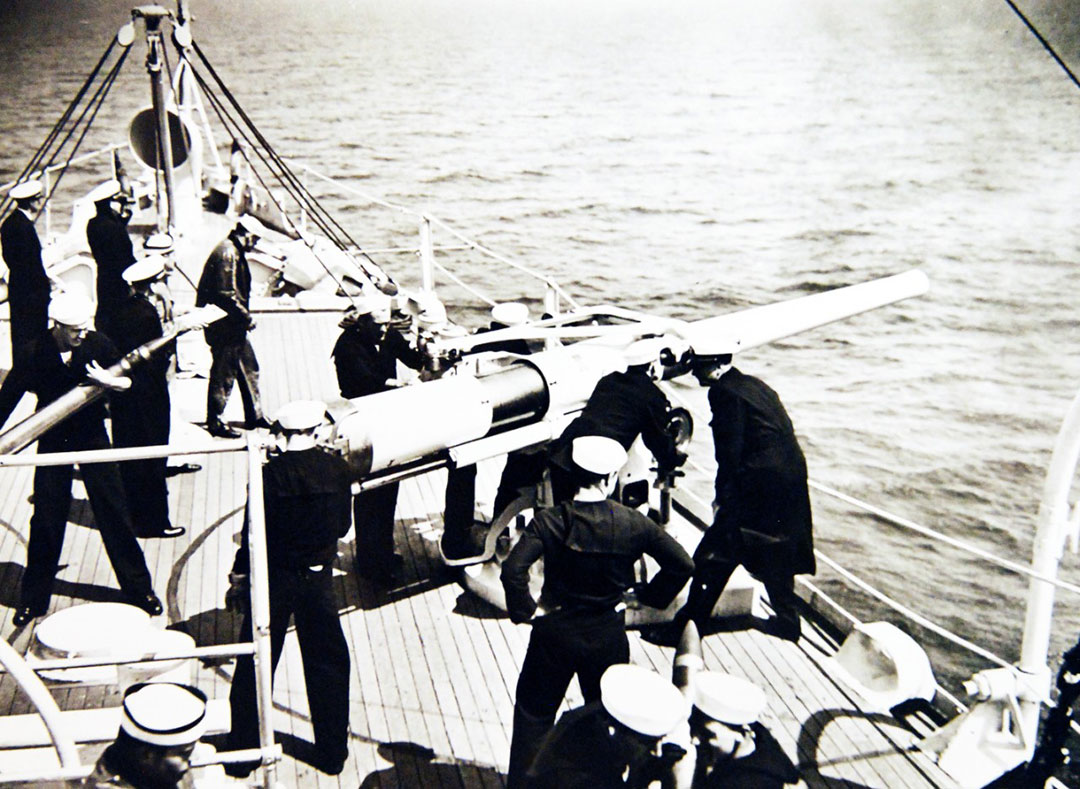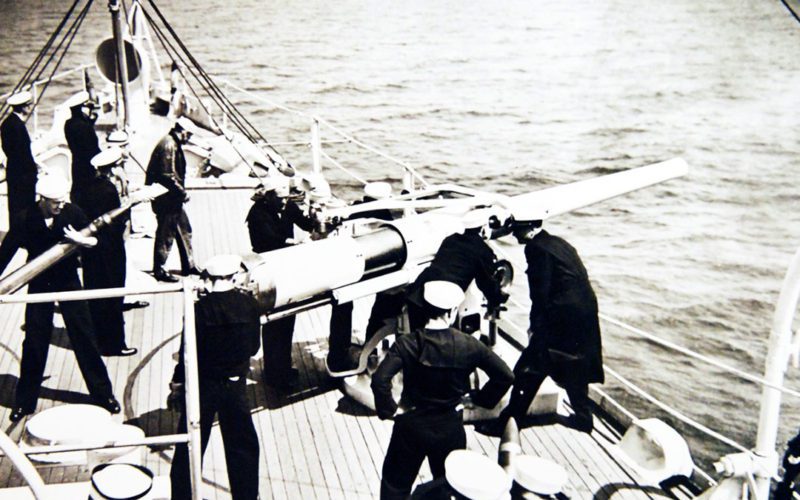
My father-in-law served in the merchant marine during World War II, sailing as an assistant purser on a supply ship. I asked him once about his most frightening experience of the war.
He replied grimly, “Our ship was part of a convoy of 20 merchant ships, and we had two Navy ships escorting us. One night in the North Atlantic on our way to Europe we got attacked by German U-boats. Luckily, my ship wasn’t hit, but the Liberty ship to our starboard went down with all hands lost.”
I told him about my dad’s service in the Navy and his stories about seeing merchant ships in convoys destroyed and sunk. My father-in-law replied, “I was proud to serve my country, but we merchant mariners never got the credit we deserved. We risked our lives bringing almost all of the military’s supplies to them, and never got the free education, pensions, home loans, or medical benefits for injuries that they did.”
There is no doubt American merchant mariners risked their lives for our country in World War II. All told, 243,000 of them served and more than 9,500 died — a larger proportion than in any other branch of the military. Nearly 800 merchant ships were attacked and sunk during the war. To their credit, some military leaders did appreciate the importance of the U.S. merchant marine. Gen. Dwight D. Eisenhower said, “When final victory is ours, there will be no organization that will share its credit more deservedly than the merchant marine.” Unfortunately, after World War II, civilian mariners did not receive that recognition.
U.S. merchant mariners again risked their lives to assist our military during the Korean War. Almost 75% of personnel were transported on commercial vessels into Korean war zones. Those ships also carried about 90% of the food, mail, and ammunition and other supplies the armed services used. Merchant mariners had the added responsibility of evacuating war refugees during the Korean War. Perhaps the most amazing story involves Meredith Victory, a 455-foot Victory-class ship launched in 1945. It ran for American President Lines on commercial contracts after World War II. It was laid up in 1950 in Olympia, Wash., as part of the National Defense Reserve Fleet. Later that year, it was activated to service for the Korean War, and ordered to the city of Hungnam, in present-day North Korea.
The ship was certified to carry just 12 passengers, but Capt. Richard LaRue took every civilian awaiting evacuation. The ship unloaded everything from food to engine room supplies to make room. Under fire and in freezing conditions, the ship took all 14,000 civilians and safely evacuated them in an event now considered a maritime miracle. Meredith Victory performed the largest maritime evacuation in history, another testament to merchant mariners’ bravery and loyalty during U.S. wartime efforts.
In Vietnam, U.S. commercial vessels once again entered war zones to support our military. My friend Mike graduated from the California Maritime Academy during the Vietnam War. He sailed as mate on a civilian ship that delivered goods under fire. Many private tankers, freighters, ro-ros and containerships carried military cargo during the war due to the advanced age of U.S. Liberty and Victory ships. Roughly 95% of the supplies needed for the military campaign in Vietnam came via U.S. merchant ships. In 1965, there were about 300 U.S. cargo ships and tankers supplying the military there crewed by about 3,000 civilian mariners.
To the detriment of our armed forces, the U.S. government did not heed the lessons of the Vietnam War. After years of allowing the American-flag merchant fleet to be replaced by foreign contracts, there were ultimately not enough ships to actively support our military. As a result, in the Gulf War in the early 1990s, the military relied heavily on foreign-flag merchant ships to deliver much-needed supplies to the war zones. Unlike the brave mariners of the U.S. merchant marine, however, some foreign crews refused to go into dangerous situations — placing our soldiers at risk due to the lack of supplies and ammunition. In contrast, American civilian mariners have never refused to enter a war zone to supply our troops.
There is no doubt that the U.S. maritime industry is a vital necessity for our military and our country. I hope we all recognize the risks the U.S. shipping industry and their American crews have taken and still take on behalf of their country.
Till next time, I wish you all smooth sailin.’
Capt. Kelly Sweeney holds the license of master (oceans, any gross tons) and has held a master of towing vessels (oceans) license as well. He has sailed on more than 40 commercial vessels and lives on an island near Seattle. He can be contacted by email at captsweeney@outlook.com

